An atherectomy is a procedure that removes atherosclerosis from our blood arteries. This treatment employs the use of a catheter with a sharp blade on one end to remove plaque from the blood vessel. A catheter is inserted into the artery by a tiny hole in the artery. The operation is carried out under the influence of local anaesthetic.
International patients come from all over the world because of the affordable costs, well-known surgeons, advanced medical centres, and outstanding tourism attractions. There are two tiers to Morocco's medical system. There is a public and private healthcare system in place. Quality assurance is a relatively new concept in Morocco, with the goal of assuring health safety. Morocco is often recognised as one of the world's best healthcare destinations.
Morocco has healthcare facilities that not only have world-class infrastructure, but also have cutting-edge, up-to-date technology. This allows both local and international patients to receive the finest possible treatment from skilled doctors. Cardiac care is improving by leaps and bounds as a result of technical developments and the use of effective patient care. As a result, getting an atherectomy in Morocco is a natural choice for everybody.
The presence of good hospitals in Morocco, such as Clinique Internationale Marrakech, which is one of the best hospitals for cardiac treatment in Morocco, makes the atherectomy procedure an appealing option.
Atherectomy in Morocco can cost from $6500- $7500, which is much lower than the cost of this procedure in the United Arab Emirates i.e.,US$ 12000-US$ 15000.
The cost, however, may vary depending on the complexity of the case, any other medical conditions that may be present, immune-deficiency disorders, and the doctor's experience.
| Country | Cost | Local_currency |
|---|---|---|
| India | USD 3500 | India 291025 |
Treatment cost
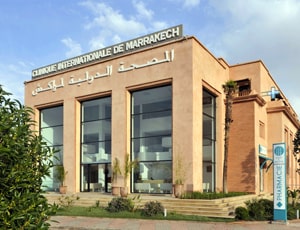
Apart from in-detail treatment procedures available, Clinique Internationale Marrakech located in Marrakesh, Morocco has a wide variety of facilities available for International Patients. Some of the facilities which are provided by them are Accommodation, Airport Transfer, Choice of Meals, SIM, TV inside room. Also listed below are some of the most prominent infrastructural details:

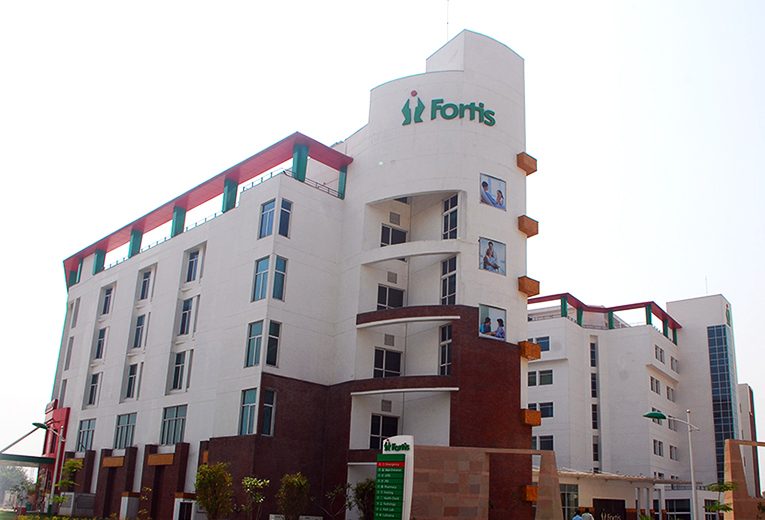
Fortis Hospital, Shalimar Bagh is a super-speciality hospital which occupies a unique place when it comes to providing world class patient care. The hospital is equipped with 262 beds and is expanded over a total area of 7.34 acres. It provides the highest quality of medical care via its team of doctors, technicians, nurses, and management professionals.
Infrastructure & facilities:
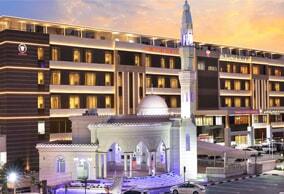
Thumbay University Hospital, Ajman located in Ajman, United Arab Emirates is accredited by JCI. Also listed below are some of the most prominent infrastructural details:
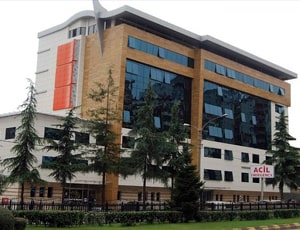
Apart from in-detail treatment procedures available, Medical Park Karadeniz Hospital located in Trabzon, Turkey has a wide variety of facilities available for International Patients. Some of the facilities which are provided by them are Accommodation, Airport Transfer, Choice of Meals, Interpreter, TV inside room. Also listed below are some of the most prominent infrastructural details:
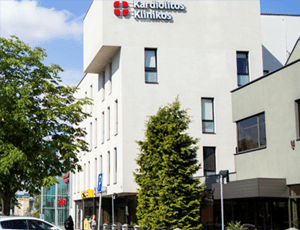
Apart from in-detail treatment procedures available, Kardiolita Hospital, Kaunas located in Kaunas, Lithuania has a wide variety of facilities available for International Patients. Some of the facilities which are provided by them are Accommodation, Airport Transfer, Choice of Meals. Also listed below are some of the most prominent infrastructural details:
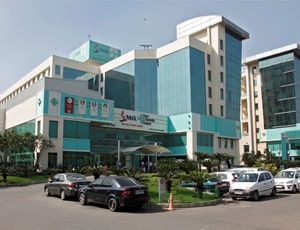
Max Super Speciality Hospital is a multi- super speciality intensive care centre, which has an excellent team of doctors, most advanced infrastructure of global standards in services and diagnosis, best practices for treatment, and the latest technology of machinery.
Infrastructure & Facilities:
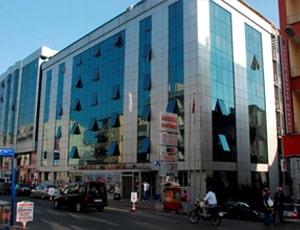
Apart from in-detail treatment procedures available, Eregli Anadolu Hospital located in Zonguldak, Turkey has a wide variety of facilities available for International Patients. Some of the facilities which are provided by them are Accommodation, Airport Transfer, Choice of Meals, Interpreter, SIM, TV inside room. Also listed below are some of the most prominent infrastructural details:
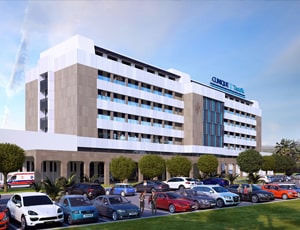
Taoufik Clinique located in Tunis, Tunisia is accredited by JCI. Also listed below are some of the most prominent infrastructural details:
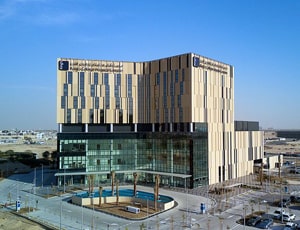
Apart from in-detail treatment procedures available, Kings College Hospital Dubai located in Dubai, United Arab Emirates has a wide variety of facilities available for International Patients. Some of the facilities which are provided by them are Accommodation, Airport Transfer, Choice of Meals, Interpreter, SIM, TV inside room. Also listed below are some of the most prominent infrastructural details:
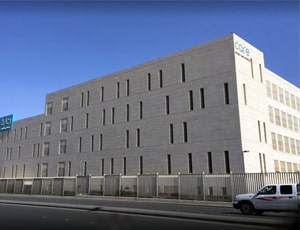
Apart from in-detail treatment procedures available, Riyadh Care Hospital located in Riyadh, Saudi Arabia has a wide variety of facilities available for International Patients. Some of the facilities which are provided by them are Accommodation, Airport Transfer, Choice of Meals, Interpreter, SIM, TV inside room. Also listed below are some of the most prominent infrastructural details:
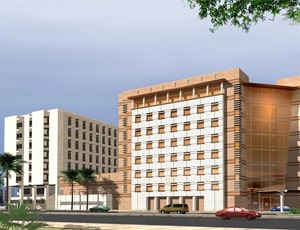
Apart from in-detail treatment procedures available, Care National Hospital located in Riyadh, Saudi Arabia has a wide variety of facilities available for International Patients. Some of the facilities which are provided by them are Accommodation, Airport Transfer, Choice of Meals. Also listed below are some of the most prominent infrastructural details:
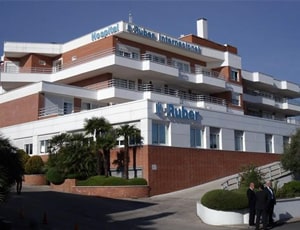
The Hospital has a wide architectural structure that consists of-
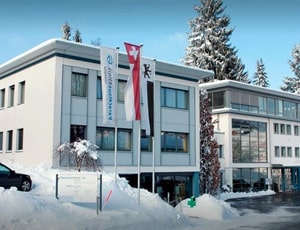
Apart from in-detail treatment procedures available, Paracelsus Clinic located in Lustmuhle, Switzerland has a wide variety of facilities available for International Patients. Some of the facilities which are provided by them are Accommodation, Airport Transfer, Choice of Meals, Interpreter, SIM, TV inside room. Also listed below are some of the most prominent infrastructural details:
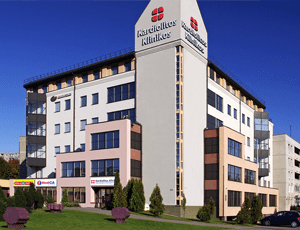
Kardiolita Hospital, Vilnius located in Vilnius, Lithuania is accredited by JCI. Also listed below are some of the most prominent infrastructural details:

Types of Atherectomy in Indraprastha Apollo Hospital and its associated cost
| Treatment Option | Approximate Cost Range (USD) | Approximate Cost Range (INR) |
|---|---|---|
| Atherectomy (Overall) | 3322 - 4985 | 272771 - 410244 |
| Directional Atherectomy | 3938 - 4992 | 323326 - 413077 |
| Rotational Atherectomy | 3321 - 4564 | 279170 - 366945 |
| Orbital Atherectomy | 3886 - 5027 | 319492 - 409941 |
| Laser Atherectomy | 4005 - 5043 | 319781 - 406615 |
Plaque is the accumulation of fat, cholesterol, calcium, and other chemicals in arteries. Plaque can either restrict blood flow or rupture, resulting in blood clots. Atherosclerosis is the accumulation of plaque. Atherosclerosis is treated with an atherectomy.
Ather refers to a fatty plaque. The term "ectomy" refers to the surgical removal of something. This treatment clears the arteries from fatty plaque. This is a minimally invasive vascular therapy for people with Peripheral Arterial Disease (PAD).
This procedure to remove plaque from an artery is known as an atherectomy (blood vessel). Plaque removal widens the artery, allowing more blood to flow freely to the heart muscles. With small revolving blades or a laser on the end of a catheter, the plaque is shaved or vaporised away during an atherectomy (a thin, flexible tube).
Patients with very hard plaque or those who have already had angioplasty and stents but still have plaque restricting blood flow may benefit from surgical atherectomy.
It's a minimally invasive technique that doesn't require a hospital stay and has a quick recovery time. Other advantages include:
In a cardiac catheterization lab, the atherectomy procedure is conducted. Sedatives are given to the patient before an atherectomy to assist him or her relax. The catheter is then carefully placed into an artery, typically in the groyne or upper leg. It is subsequently guided toward the heart through the blood vessel. Once it's in place, dye is delivered into the coronary arteries via the catheter. An X-ray is conducted to assist the physician in locating the obstructed or narrowed area. The physician then cuts or vaporises plaque with tiny blades or a laser linked to the catheter's end. An angioplasty or stent procedure may be performed after the atherectomy. The catheter is withdrawn after the treatment is finished. After around 24 hours, the majority of patients are able to return home.
The recovery process is very simple. The patient is kept still for 3-6 hours post-procedure to ensure the incision stops bleeding. The pain at the incision site is very less and will be healed at a short time. The area is checked periodically for bleeding. Little swelling might be common in the initial days. The hospital stay lasts for a day or two usually. The patient is discharged after close monitoring and no complications for two days. The patient is given wound care instructions. The patient is advised to do minimal physical activity for a few days. They can resume their normal activities in three weeks. The patient will also be given a few follow up medications. The patient should ensure that the medications are followed for a speedy recovery.
Ask your healthcare adviser for the best multiple options and choose the one that meets your expectations
Different hospitals have different pricing policy when it comes to the cost of Atherectomy in Morocco. The Atherectomy package cost usually includes all the expenses related to pre and post surgery expenses of the patient. The Atherectomy cost in Morocco includes the cost of anesthesia, medicines, hospitalization and the surgeon's fee. There are many things that may increase the cost of Atherectomy in Morocco, including prolonged hospital stay and complications after the procedure.
There are many hospitals across the country that offer Atherectomy to international patients. Some of the most renowned hospitals for Atherectomy in Morocco include the following:
After discharge from the hospital, the patient has to stay for another 15 days in the country for complete recovery. This duration of stay is recommended to complete all the necessary follow-ups and control tests to ensure that the surgery was successful.
Apart from the Atherectomy cost, the patient may have to pay for additional daily expenses such as for guest house after discharge and meals. These charges starts from USD 50 per person.
Atherectomy in Morocco is offered in almost all metropolitan cities, including the following:
The patient is supposed to stay at the hospital for about 2 days after Atherectomy for monitoring and care. During the recovery, the patient is carefully monitored and control tests are performed to see that everything is okay. If required, physiotherapy sessions are also planned during recovery in hospital.
There are more than 1 hospitals that offer Atherectomy in Morocco. Such clinics have the required infrastructure and a dedicated unit where patients can be treated. Such hospitals follow all legal protocols and guidelines as specified by the local medical affairs body when it comes to the treatment of international patients.